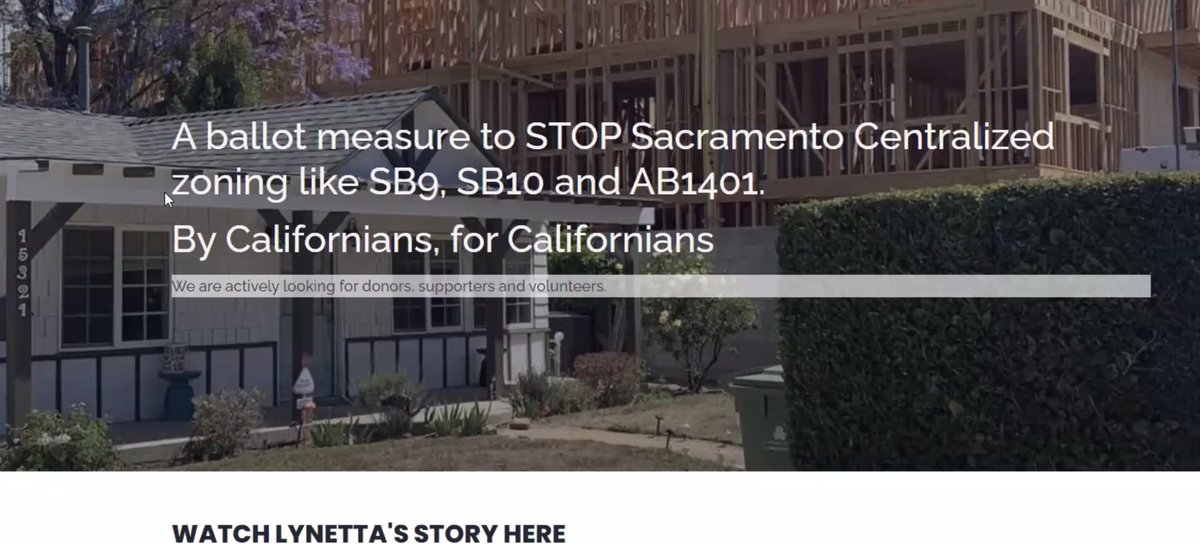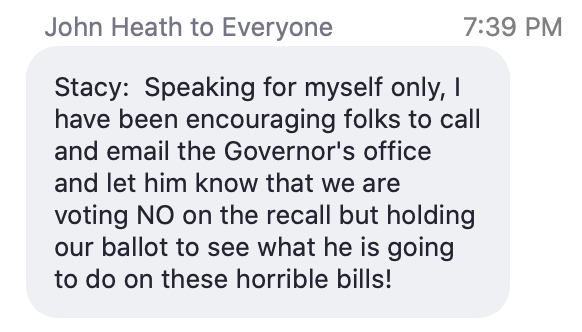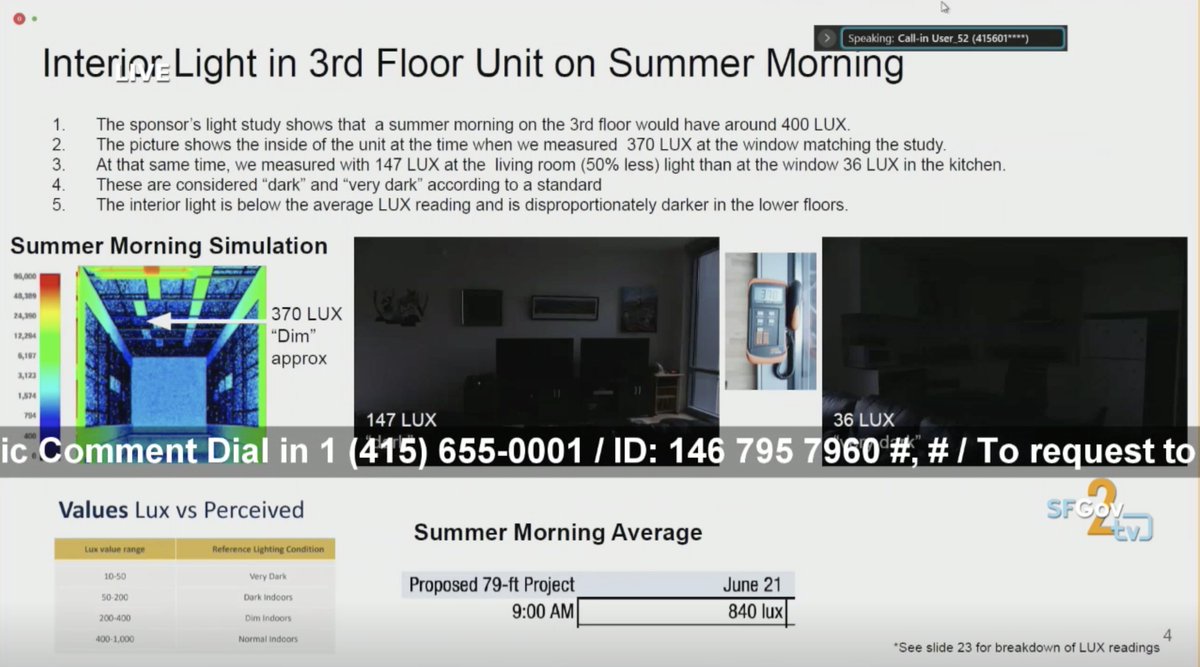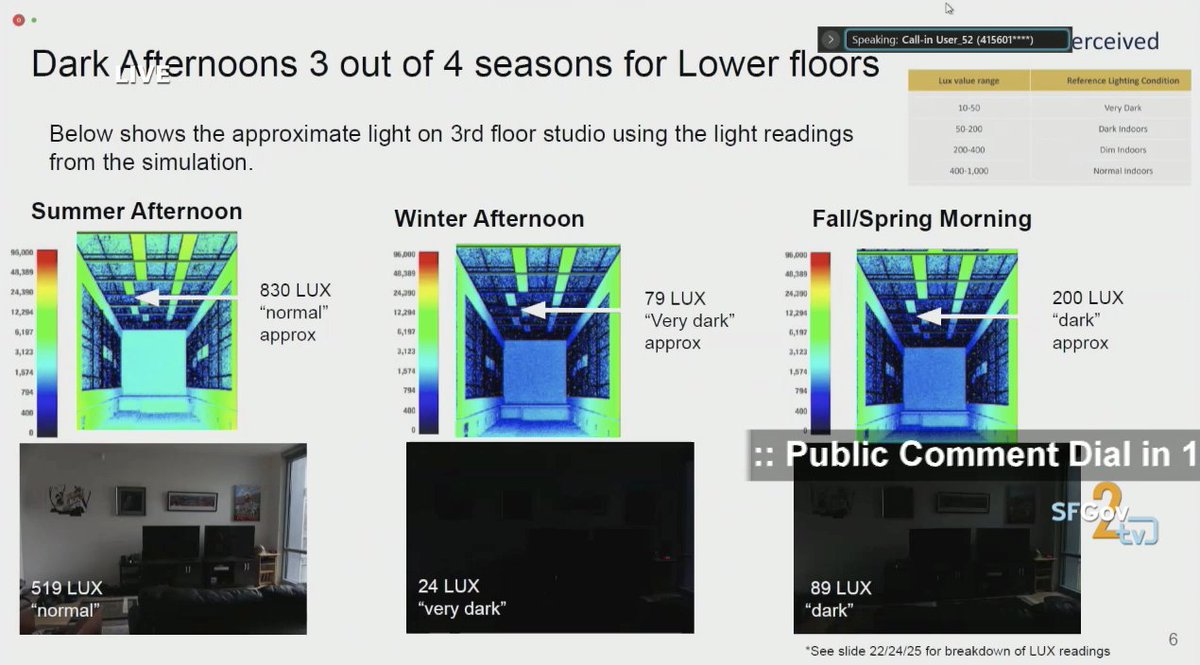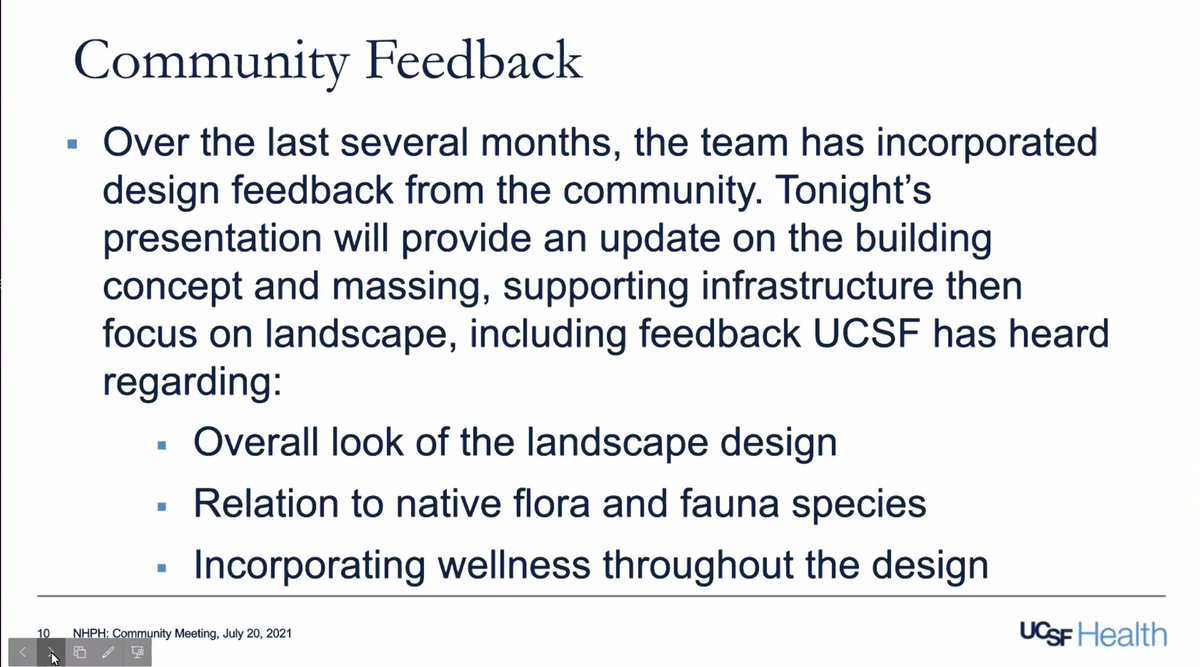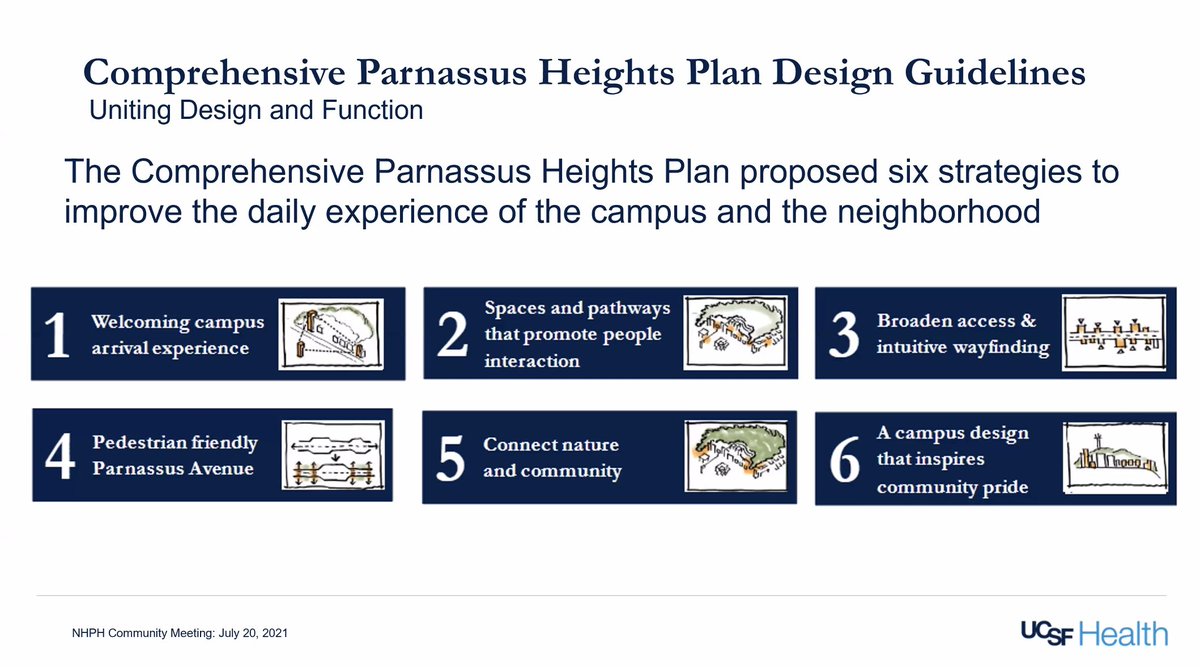
Hello California. I'm attending a meeting about the Californians for Community Choice Initiative. They're submitting a ballot initiative to strip the state of zoning control. 

Bill Brand says this initiative has been crafted in response to SB 9 and SB 10. He says they're not against development, they're in favor of affordable housing. He asks if Sacramento is better for zoning than local jurisdictions.
Brand says he met with Scott Wiener in his office about SB 827 and asked, "Where's the affordable housing?" He says Scott Wiener just looked at him.
"Everybody has different challenges in their City. Redondo Beach is a suburb of Los Angeles... In the morning we're gridlocked leaving town." He says 93% of residents leave town and there's gridlock at morning and at night. They need to alleviate gridlock, not more residents.
Brand talks about meeting Rick Hall and sharing concerns about Sacramento. "SB 9 and SB 10 are now out of the Assembly and they're going to the Senate.... I crafted this initiative with legislative counsel." They will assign an attorney if you petition them properly.
Brand says this started three years ago. Here we are. "A lot of attorneys have looked at this and think it's solid... Bring zoning back to the local level where it belongs... We're really focused on affordable housing. These market-rate bills are gonna shove this out."
He continues: "Plus we have the RHNA."
He's plugging the website: communitiesforchoice.org
Brand: "We need your support... We don't have big developers behind us. That's what's driving this in Sacramento."
Susan Candell is now introducing City Councilmember Jovita Mendoza in Brentwood. She says her parents were illegal immigrants. She grew up in East Oakland. Her families grew up to buy a couple houses in Oakland on a split lot.
Mendoza: "Our dream was the American dream. WE wanted a single-family home in the 'burbs." She says her siblings don't all want that.
Mendoza: "Our choices are being taken away. As the child of immigrants, that's what we came from... The government kind of tells you what to do all the time." She got involved in politics due to land use when a developer wanted to build a lot of homes near her.
Mendoza says that when she ranks her issues, land use is one. Affordable housing is another one. "When I joined this group, we all care about affordable housing, but we all care about housing choice."
"We care about smart growth." She cities water, traffic, schools, fire dept.
"We care about smart growth." She cities water, traffic, schools, fire dept.
Mendoza: "I think this bill is smart... We do need affordable housing, but we need to make smart decisions for every city."
Her biggest fear is that once you do SB 9 and SB 10, you can't go back.
Her biggest fear is that once you do SB 9 and SB 10, you can't go back.
Now Peggy Huang, Mayor of Yorba Linda, is speaking. She says it's great to be part of a non-partisan group working together. Land use has always been a matter of local affairs. "We know what's best for our cities."
Huang says Sacramento doesn't honor the unique character of every city. Yorba Linda has been bashed a city full of big lots that should be split up and upzoned.
Huang saysthere are oil wells everywhere. So public safety and health must be considered to follow state/fed guidelines about homes being close to capped wells. But with "rubber stamped" developments, there's no one to verify that they are safe.
Huang says that the American dream is not living in "1,200 sqft of airspace" or living underground. It's about homeownership. Affordable housing is a part of that mix. Sacto ensures there's market-rate, but little for people who can't afford it.
"None of these bills will help anybody be able to purchase these homes" that will be built due to SB 9 or SB 10. She says this initiative will take back the state for the people.
Dennis Richards is next. He says he's lived in SF for 25 years and was involved in an upzoning measure in his neighborhood that had the full support of the community. It worked because it was a bottom-up approach to what makes a neighborhood special.
Richards says the development fits in beautifully with the existing context. He says there's a lack of affordable housing in the bills. When you layer state bills like the state density bonus on local ordinances, it dilutes IZ rates set locally.
Richards: "Guess what—your affordable housing percent goes down. These things have an unintended set of consequences."
"We've been carpet bombed by bills the last four years." He repeats the "carbet bombed" phrase, in case people didn't hear.
"We've been carpet bombed by bills the last four years." He repeats the "carbet bombed" phrase, in case people didn't hear.
Richards says that David Chiu said a city council doesn't have to use SB 10 if they don't want to. But if you get a pro-development council, they can do so w/o the residents overturning it, so that makes it undemocratic.
Richards says that Scott Wiener said COVID is irrelvant to future planning. Richards disagrees, saying that state bills are applying 20th century solutions to a 21st century reality. "I give [this ballot initiative] my full support."
John Heath, president of United Homeowners' Association, is here. "We're all here because we believe in the power of collaboration to solve problems." These issues are challenging, which is why it's important to have the right approach.
Heath says that he used to work for the City of LA, where they would send him to Sacramento and participate in trade association discussions in the early 90s. They talked about land use, CEQA reform, the need for housing.
Heath says in the 90s that they were having the same economic discussions they're having now. He says he doesn't want to see his kids and grandkids have these same conversations as us.
Then Heath says the idea is that that densifying will magically fix housing prices. Ronald Reagan introduced the idea of trickle-down economics, and that didn't work. We don't need more market-rate units. We need more affordable units below market rates.
Heath says his community is the only nationally historically designated community due to its connection to African-American history, with many African-American homeowners. "Folks literally bled and died for the right to live where they want to." Now folks want to do away with it.
Heath says we often have lofty ideas, and people don't focus on the ultimate policy objective. He wants to read letters to contextualize this issue.
Heath: Michael Lawson from LA Urban League wrote that ending single-family zoning would introduce predatory lending. Developers could build overpriced apartments and displace existing residents and create permanent rentership. Corporations would own these apartments.
Lawson says that ending SFZ would create renter communities with poorly maintained infrastructure.
Heath says that his group wrote to Toni Atkins that they encouraged her to focus on creating affordable housing on commercial corridors at less than 80% AMI. HCD concluded that California has "overperformed" in creating market-rate housing, but underperformed in BMR.
Heath says that he's an affordable housing developer professionally. He says that successful development requires collaboration with local govts, businesses, and communities. "It's been a carpet bombing of bill after bill."
Heath: "We need to get rid of this constant push to densify... Not that market-rate housing is bad—we need all range of housing... This initiative is gonna restore some balance."
Heath says this initiative is a chance to stand up to special interests and dark money. He wants to have good discussion and Q&A. The goal is to increase affordable housing, have better infrastructure, and improve the environment.
Susan Candell is reading questions. The first one: "When should we expect signature gathering?"
Bill Brand says the initiative was submitted yesterday to the Attorney General. There's a 30-day comment period and say what they think should be changed. Then they title/summarize it
Bill Brand says the initiative was submitted yesterday to the Attorney General. There's a 30-day comment period and say what they think should be changed. Then they title/summarize it
Brand: After the AG issues title/summary, maybe 3 months from now, that starts the 180-day clock to gather well over 1 million signatures. It's a constitutional amendment.
Brand: "If this gets on the ballot, a lot of big companies are going to spend a lot of money to defeat it. This is their neutron bomb."
Bill Brand says that this bill would undo ANY zoning that affects local activity. "SB 330—a variety of bills that try to strip communities of the ability to zone their own towns—would be eliminated."
Q2: Will the initiative include all cities and towns? What about charter cities?
Brand: Yeah, it amends Sections 4, 5, and 7 of Article 11 of the CA Constitution.
Brand: Yeah, it amends Sections 4, 5, and 7 of Article 11 of the CA Constitution.
Brand: "The problem with SB 10 is that it violates Article 2, Section 11 of the Constitution... It allows city councils to override voter initiatives. The whole point of voter initiatives was to put it to the voters... They think they can violate the consitution."
Brand: Sure they're democratically elected, but they're passing undemocratic legislation because it violates the constitution.
Q3 is if development will be changed due to this initiative being introduced.
The answer is no, not unless it passes.
The answer is no, not unless it passes.
Peggy Huang says this initiative is moving forward due to ACA 7 by Muratsuchi failing in Sacramento.
Q4 is asking how we take housing out of the control of Blackrock.
John Heath says Wall Street is paying a lot of money to drive housing bills. He thinks that they can get legislators to understand that it's not about "YIMBY" but "Wall Street in my back yard."
John Heath says Wall Street is paying a lot of money to drive housing bills. He thinks that they can get legislators to understand that it's not about "YIMBY" but "Wall Street in my back yard."
Susan Candell says that if housing is a human right, why is it still a commodity?
John Heath says commodification is still a problem, with all the homeless people who need homes. It's a travesty and disgrace. At some point landlords have to give people a break. He says his org is an affordable housing provider, but everybody needs a break.
Jovita Mendoza says SB 9 and SB 10 don't fix the root of the problem "because the inventory is there." It doesn't help people get off the streets.
Bill Brand says that if people want to help, right now it's about money. "We've all done a tremendous amount of work on just a shoestring, but now we need money. That's what we're up against."
The meeting has just wrapped up. Thanks for reading!
• • •
Missing some Tweet in this thread? You can try to
force a refresh

